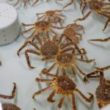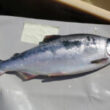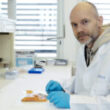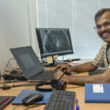DeepVision
Adapting spectral and molecular tools to improve fish welfare assessments
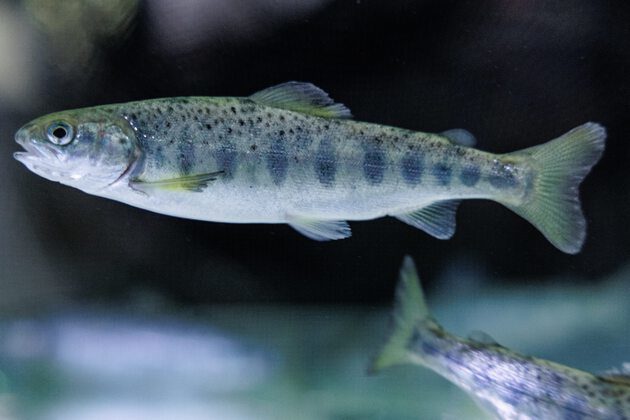
In this project we are exploring how new technologies can be adapted to improve the speed and accuracy of welfare assessments in aquaculture.
Start
01. Jan 2022
End
31. Dec 2024
Funded by
Nofima
Project Manager(s):
Background
The management of fish welfare is one of the key concerns in commercial aquaculture. Healthy fish are happy fish but understanding the welfare of a cultivated population numbering in the hundreds of thousands is particularly challenging.
Traditional techniques involve sub-sampling fish for manual assessment by human observers and veterinarians. This approach is limited not only by the time required to conduct these investigations, but also our own ability to detect welfare traits with the human eye or laboratory based tools.
New technologies, designed for land-based agriculture and food systems, can be adapted to improve our ability to assess numerous aspects of fish health.
By training computers to identify welfare traits, we can not only process more samples in a shorter amount of time, but increase the accuracy of assessments with cameras, sensors, and computer algorithms to produce more reliable and quantifiable estimates of fish health.
Goal
The main objective is to investigate how to adapt various tools already at Nofima for use in detecting welfare traits in fish, shellfish and seaweeds.
What we do
There are numerous ways that assessments of welfare in aquaculture species can be improved. The rapid advance of technology and computational algorithms creates a new frontier to utilize these tools for this purpose.
In this project we exploring numerous ways to push various technologies forward into this space. Our goals are to develop systems which can quantify the welfare status of aquaculture animals rapidly, accurately, and with less stress to the animal than is currently possible.
Some of the research directions of this project are:
- Hyperspectral imagery for wound detection in Atlantic Salmon
- Using Infra-red cameras to predict visceral fat in Salmon and Cod
- Using remote sensors to assess mucus health in farmed fish
- Developing non-invasive techniques to determine the sex of the European Flat Oyster.
The outcomes of this project will expand our toolkit for welfare assessments on the farm and generate not only new ways to obtain that data but, potentially, entirely new traits that cannot be detected effectively with traditional methods.
The tools we develop in DeepVision will have direct applications in farm management as well as for further research to improve our ability to understand the root causes of stress in aquaculture organisms.
By collaborating across departments within Nofima, we are bringing together the best minds in technology, biology, and aquaculture to create novel and exciting ways to improve the health of fish and shellfish on farms across the world.
Publications
Strategic priority areas
Nofima invests its own resources in order to increase competence in useful, relevant and innovative areas and strengthen our position among the leading applied research institutes.
